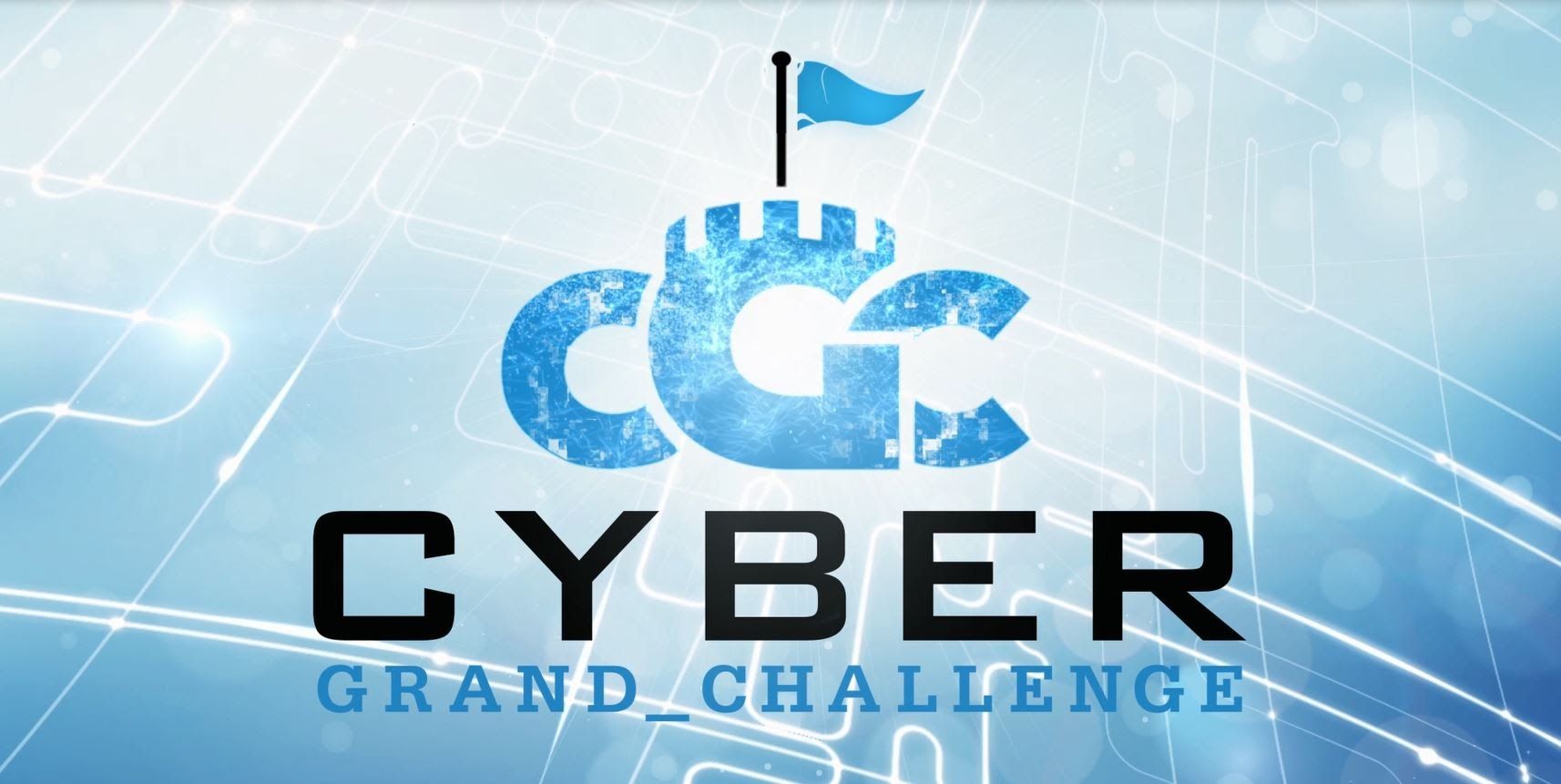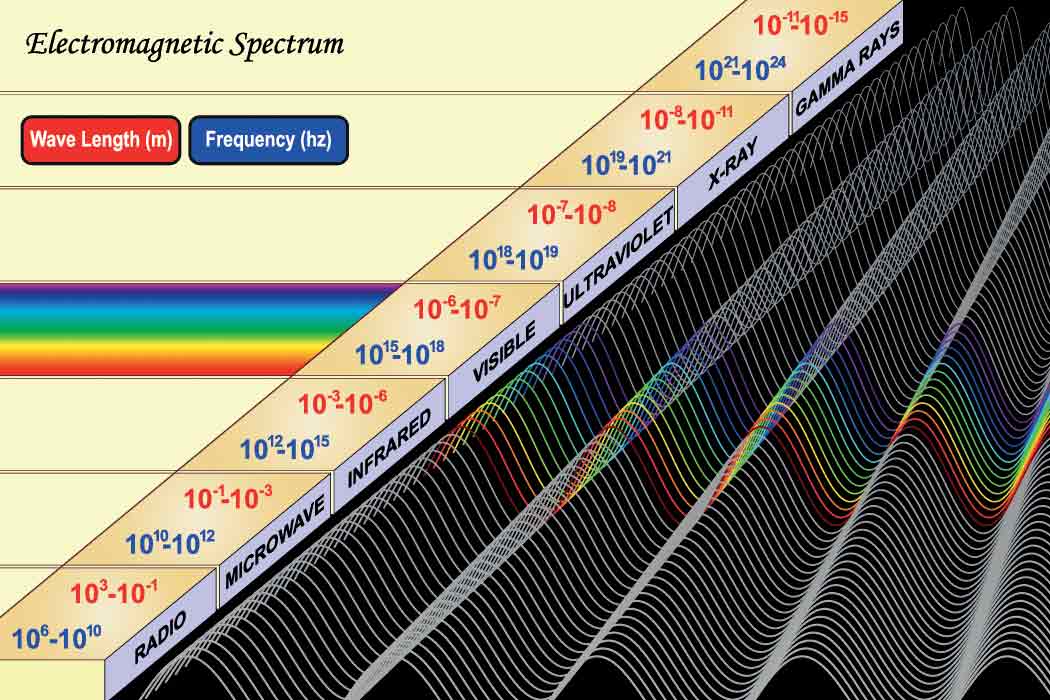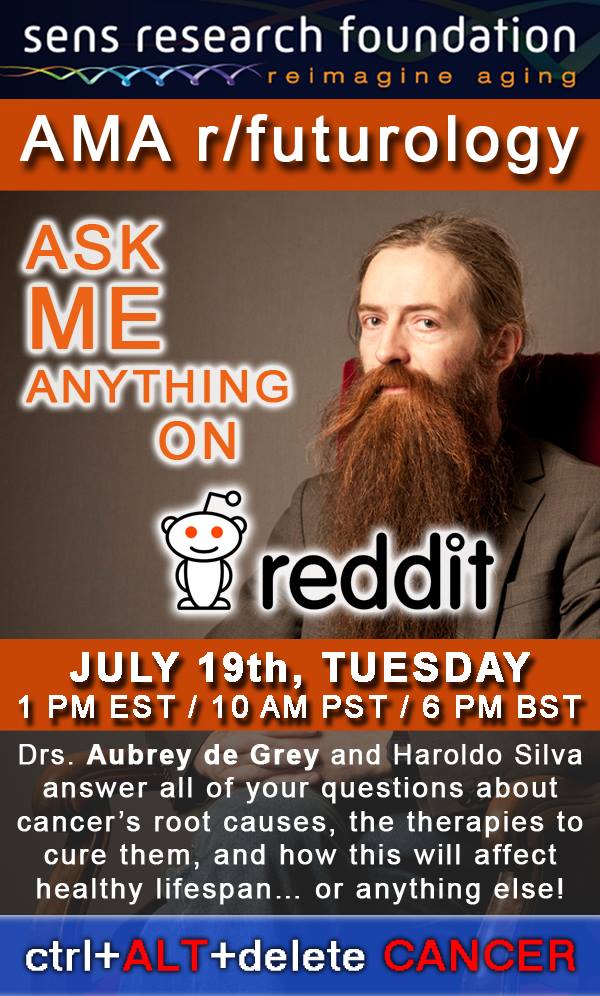Page 11052
Jul 14, 2016
Terahertz amplifiers could open new frontiers in RF communications
Posted by Karen Hurst in category: futurism
Very nice.
Researchers from Northrop Grumman, working with DARPA, have developed two different amplifiers capable of using the THz range of the spectrum, which could lead to a new range of high-speed, secure communications.
Jul 14, 2016
You say you want a revolution: DARPA’s Cyber Grand Challenge
Posted by Karen Hurst in category: cybercrime/malcode

DARPA’s self-repairing security system’s challenge.
In a few weeks, a town better known for events like the World Series of Poker will host the World Series of Hacking.
Continue reading “You say you want a revolution: DARPA’s Cyber Grand Challenge” »
Jul 14, 2016
Dr Aubrey de Grey is doing an AMA 19th in Reddit Futurology 1pm EST/6pm BST
Posted by Steve Hill in categories: biotech/medical, health, life extension
If you are interested in the work of SENS and how Dr Haroldo Silva and his team are looking for ways to treat cancer why not come along and join them?
There is going to be a SENS AMA on Reddit with Aubrey de Grey and OncoSENS researcher Haroldo Silva. Ask them anything about SENS and the long term goal of developing universal cancer therapies.
FUTUROLOGY JULY 19TH 1 pm EST/10 am PST/6 pm BST.
Continue reading “Dr Aubrey de Grey is doing an AMA 19th in Reddit Futurology 1pm EST/6pm BST” »
Jul 14, 2016
Russia’s hyperloop dream is undone
Posted by Karen Hurst in categories: business, economics, Elon Musk, finance, transportation
Sad for Russia.
President Vladimir Putin and other Russian officials dream of a technological leap that could immediately close the gap between Russia and more advanced economies, as Sputnik did for the Soviet Union. The hyperloop, a kind of train in a tube that can reach speeds of up to 700 mph, fits that dream, and a well-connected Russian businessman has invested in it — only to see the project become embroiled in a lawsuit involving a Silicon Valley startup’s founders and claims of financial mismanagement.
Elon Musk, Tesla’s chief executive, proposed the hyperloop four years ago. This “fifth mode of transport” would involve a system of practically airless tubes through which magnetically levitated pods could carry passengers and cargo. Musk has not set up a company to bring the project to reality, but others have. For example, Hyperloop Transportation Technologies, wants to build a system in Slovakia. Another, Hyperloop One, offered a public demonstration of some elements of its technology in May.
Jul 14, 2016
Russia building hypersonic nuclear bomber to reach other side of the world in TWO hours
Posted by Karen Hurst in category: military
Russia’s other option to long range missals.
RUSSIA is preparing to unveil a hypersonic stealth bomber capable of reaching such high speeds it could reach a target ANYWHERE in the world within two hours.
Jul 14, 2016
In Nanolasers, A Little Impurity Goes A Long Way
Posted by Karen Hurst in categories: computing, internet, particle physics, quantum physics
How zinc atoms improved Nanolaser light emission which could lead to the development of low-cost biomedical sensors, quantum computing and faster internet.
By adding impurities in the form of zinc atoms, researchers have improved nanolaser light emission by a hundredfold.
Jul 14, 2016
‘Space Plane’ which could fly anywhere in the world in four hours secures €10,000 development contract
Posted by Andreas Matt in category: space travel
Could we soon be saying goodbye to long-haul flights? One company has taken an important step in making this dream come true.
Oxford’s Reaction Engines Ltd (REL) announced it has received a €10,000 development contract with ESA, so it can work on its revolutionary Synergistic Air-Breathing Rocket Engine (SABRE).
This technology can work both in the Earth’s atmosphere and in space — which is crucial to space planes.
Jul 14, 2016
A neural network tried to write a 9th Harry Potter book, and the results are hilarious
Posted by Sean Cusack in category: robotics/AI
Do you remember that memorable scene in the Harry Potter books when a person seeking revenge on Ron turns out to be Dumbledore hiding behind a cream cake?
If you don’t, that’s probably because you read the version of Harry Potter written by J.K. Rowling instead of an LSTM recurrent neural network — trained to generate new Hogwarts-related stories using a data set consisting of the series’ first four books.
“I’ve been experimenting with deep learning over the past few weeks, and the Harry Potter story is the result of one of those experiments,” creator Max Deutsch tells Digital Trends. “Beyond just looking for a fun way to practice what I’ve been learning, the Harry Potter project was an attempt to make something enjoyable to read.”
Jul 14, 2016
Is physical pleasure bad for your health?
Posted by Marios Kyriazis in categories: aging, environmental, life extension, philosophy
Philosophers have been debating the meaning of life for millennia. Billions of people believe that the principal aim in life is to experience pleasure, and they try to enjoy life as much as possible before they die. A minority of others, make it their life’s aim to achieve something which is over and above simple pleasure: not merely to help others, not even to help humanity at large. They aim, whether knowingly or unknowingly, to improve the evolutionary process of nature as a whole.
So far, so good. But it appears that the view we hold about our life, our worldview, has a direct impact on our biology. We know that thinking positively may help improve the immune system. But research also shows that people who aim for pleasure (Hedonia) may have an impaired genetic profile, compared to those who aim for higher virtues (Eudaimonia). There is a distinction between these two terms and it is worth providing a definition here:
Hedonia is an exclusive search for pleasure and avoidance of discomfort. It may involve increased emphasis on eating well, drinking, dancing, playing, and generally enjoying simple pleasures in life. It is contentment, gratification, fun, merriment, satisfaction and, perhaps necessarily, a lack of motivation to search for a nobler aim in life. One may argue that hedonia involves a risk that leads to bad health due to a tendency to excesses (smoking, alcohol, coffee, sweets), a general inclination to avoid uncomfortable physical activity, and a lack of challenging cognitive effort. The risk of addiction may be increased. Erosion of social bonds become a possibility when a hedonist is more concerned about his/her own pleasure and is less sensitive to the needs of others.
Eudaimonia is a term reflecting the highest ‘intellectual good’. It is virtue plus excellence, superior ethical refinement, cognitive sophistication, as well as other qualities such as persistent motivation, wisdom, imagination, creativity, vision and a feeling of purpose. The term has been discussed by many ancient Greek philosophers particularly Aristotle and the Stoics. In modern times and in a wider sense, eudaimonia may be equated with meaningful technological hyperconnection, or ‘Intentional Evolution’, an attempt to constructively improve the human condition in all respects (including those relating to the wider universe). Hedonia is found both in animals and in humans, whereas eudaimonia is only found in humans.
Continue reading “Is physical pleasure bad for your health?” »
Tags: Eudaimonia, longevity, Pleasure, Social genomics, Society















